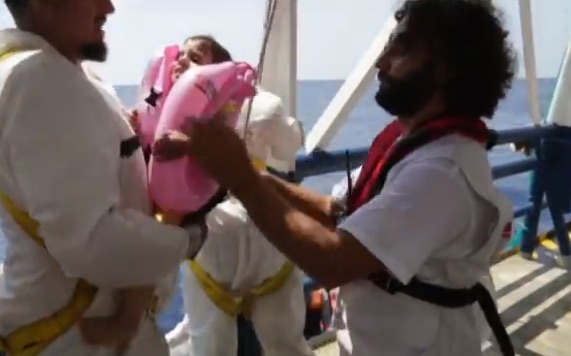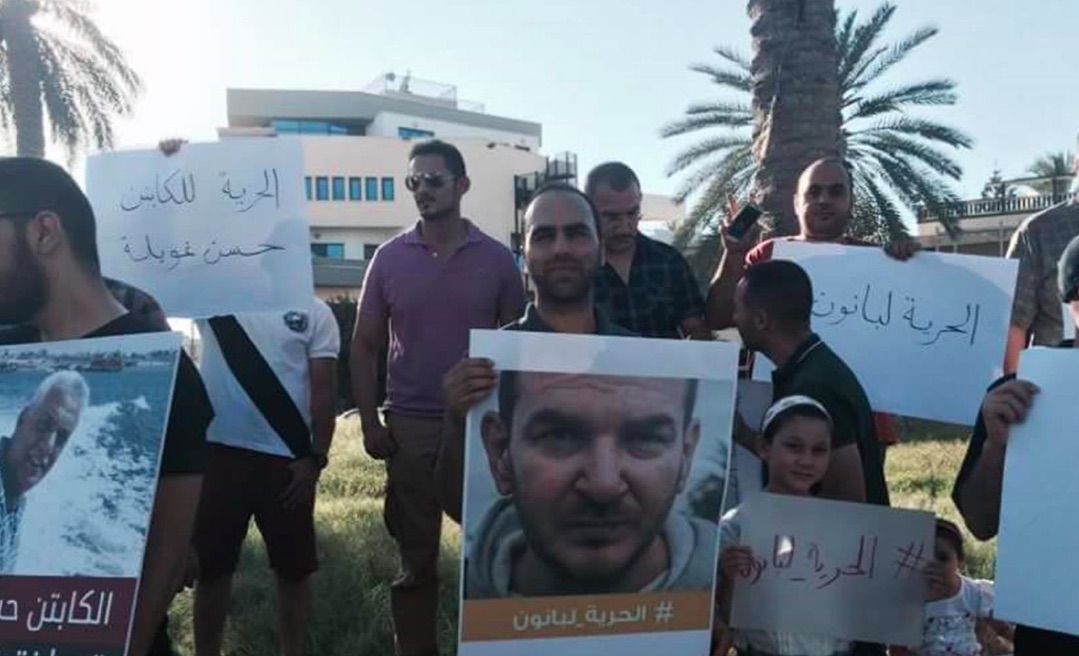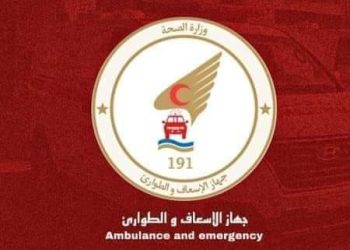By Libya Herald Reporter.

Tunis, 5 August 2015:
Once more, hundreds of migrants are feared dead after a packed fishing boat overturned off . . .[restrict]the Libya coast on Wednesday as European naval vessels approached it.
Irish and Italian naval units were approaching the vessel about 75 miles north west of Tripoli when it abruptly turned over, possibly because anxious migrants on its decks crowded to one side overbalancing the craft.
By nightfall Irish and Italian units had rescued 367 migrants and found 25 dead, but there are reports many more perished. Survivors said between as many as 600 people were on the boat, and it is feared many were trapped below decks.
The loss of life makes it potentially the second worst tragedy this year, after up to 800 were reported drowned when a fishing boat sank in the sea in April.
The fishing boat reportedly came from Zuwara, one of the major people-smuggling hubs in Libya, where gangs charge a minimum of $1,000 per passenger for the dangerous trip.
Irish naval vessel Le Niamh arrived near the boat and deployed two rigid hull inflatable boats to pick up survivors. Meanwhile an Italian military helicopter dropped life rafts into the sea.
With the Libyan economy in ruins, migrant smuggling is good business for local gangs, who routinely pack 500 or 600 people into craft that are often barely seaworthy. The presence of EU naval patrols in the area is regarded by the smugglers as a “ferry service” for their cargoes. Often the pilots of the boats use satellite phones or radios to hail EU craft to pick up the migrants off Libya’s shore.
This week the UN reported that more than 2,000 migrants had died in the seas off Libya since the start of the year. The European Union has already ordered its navies to begin reconnaissance and electronic surveillance of migrant smuggling ports, but proposals to take military action against the smugglers boats have been opposed by both Libya’s governments and by the UN itself.
Facing the paucity of policy options, EU leaders have been hoping UN peace talks could bring peace to Libya, allowing a unity government to take action at the smugglers. But while the civil war continues, people-smuggling is one of the most lucrative businesses in the country, with migrants fleeing war and poverty in their own countries continuing to journey to Libya in their thousands. [/restrict]









